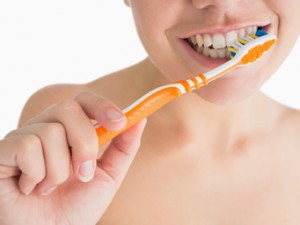This article is courtesy of PRWeb, please share your comments below…..
 February is National Children’s Dental Health Month. According to Smiles Park Avenue Dental, roughly 41 percent of children age 2-11 have had decay in their primary teeth.
February is National Children’s Dental Health Month. According to Smiles Park Avenue Dental, roughly 41 percent of children age 2-11 have had decay in their primary teeth.
If there’s one thing that all dentists have in common, it’s that they regularly see young patients with tooth decay. According to a report by Centers for Disease Control and Prevention (published Aug. 26, 2005), roughly 41 percent of children age 2-11 have had decay in their primary teeth, while approximately 32 percent of children ages 9-11 have decay in their permanent teeth.¹
Sharde Harvey, D.D.S and principal at New York-based Smiles Park Avenue Dental, a practice that specializes in cosmetic and restorative dentistry, notes that there are many foods that can help or harm a child’s teeth. Here are the good and the bad:
THE GOOD: Here are some foods, even “junk foods,” that can help a child’s oral health:
* Dark Chocolate. The super dark treat can actually brighten a child’s teeth. Tannins (antioxidants found in cacao) prevent bacteria from sticking to teeth while also neutralizing the microorganisms that cause bad breath
* Unsweetened hulless popcorn. This treat acts as a natural tooth detergent in addition to being highly nutritious and loaded with vitamins and minerals. Its calcium phosphorus supplies valuable minerals and roughage and helps to exercise the teeth.
* Chew gum with xylitol. It helps reduce bacteria which lead to tooth decay. A few pieces of a gum such as Dentyne Ice leave no plaque-causing sticky residue, changes the chemistry in a child’s mouth and can actually help keep cavities away.
* Cinnamon flavored gum. Cinnamon helps to reduce bacteria in a child’s mouth. So gum like Orbit Cinnamon flavor may very well help inhibit growth of cavity causing bacteria.
* Sugar-free lollipops and hard candies. These treats stimulate saliva, which prevents dry mouth. A dry mouth allows plaque to build up on teeth faster, leading to an increased risk of cavities.
* Sip sugary drinks through a straw. This helps children to limit the amount of contact the sugar has with the teeth.
* Yogurt snacks. Foods that provide calcium and phosphates, such as yogurt snacks and milk and cheese can strengthen the tooth’s surface.
* Juice boxes. Add water to the juice drinks to dilute the sugar.
* String cheese. Some foods neutralize acids which cause cavities such as pears, apples and dairy, especially cheese.
* Raw nuts. These provide calcium and phosphates that can strengthen the tooth’s surface.
THE BAD: Here are some food-based causes of tooth decay in children:
* Drinking from a bottle. When children drink from a bottle, the liquid sloshes around their teeth and gums, and any drink with sugar in it will increase the chance of decay. So only put milk and water in a bottle. At bedtime, it’s especially important to put only water in the bottle. That’s because prolonged exposure to the sugars in milk can cause cavities too.
* Sippy cups. Limit the amount of time that a child has a sippy cup in her mouth, especially if it is filled with juices which are high in sugars and acids. Try diluting the juice or substituting water instead.
* Gummy vitamins. Many children consume their sweet or gummy vitamins after they brush their teeth, so the sugar remains on their teeth all morning.
* Sour candies. High acid levels in these treats can break down tooth enamel quickly.
* Sticky candies. Candies like gummies and dried fruits linger on the teeth, giving the bacteria extra time to cause damage.
* Long-lasting sugars. Lollipops and cough drops allow the sugar to remain in the mouth for a prolonged period.
* Starchy foods. Foods like French fries, white bread and pretzels easily lodge between teeth and are quickly converted to sugar by the pre-digestive saliva.
* Powdery candy. Candies which dissolve quickly and contain nothing but sugar, can lead to cavities by changing the mouth pH and giving the bacteria pure sugar to feed on.
* Acidic foods and drinks. Such as soda and fruit juices eat away the healthy enamel of teeth.
The foods that damage teeth have been shown to damage overall health, and the foods that are favorable to teeth tend to be favorable to health. No surprise. This is just one more reminder of why it is important to teach children early on the importance of eating well and avoiding sugars.
For additional information please go to http://www.SmilesParkAvenueDental.com
Reference:
1) Morbidity and Mortality Weekly Report (MMWR), The Centers for Disease Control and Prevention, Aug. 26, 2005, http://www.cdc.gov/mmwr/preview/mmwrhtml/ss5403a1.htm
